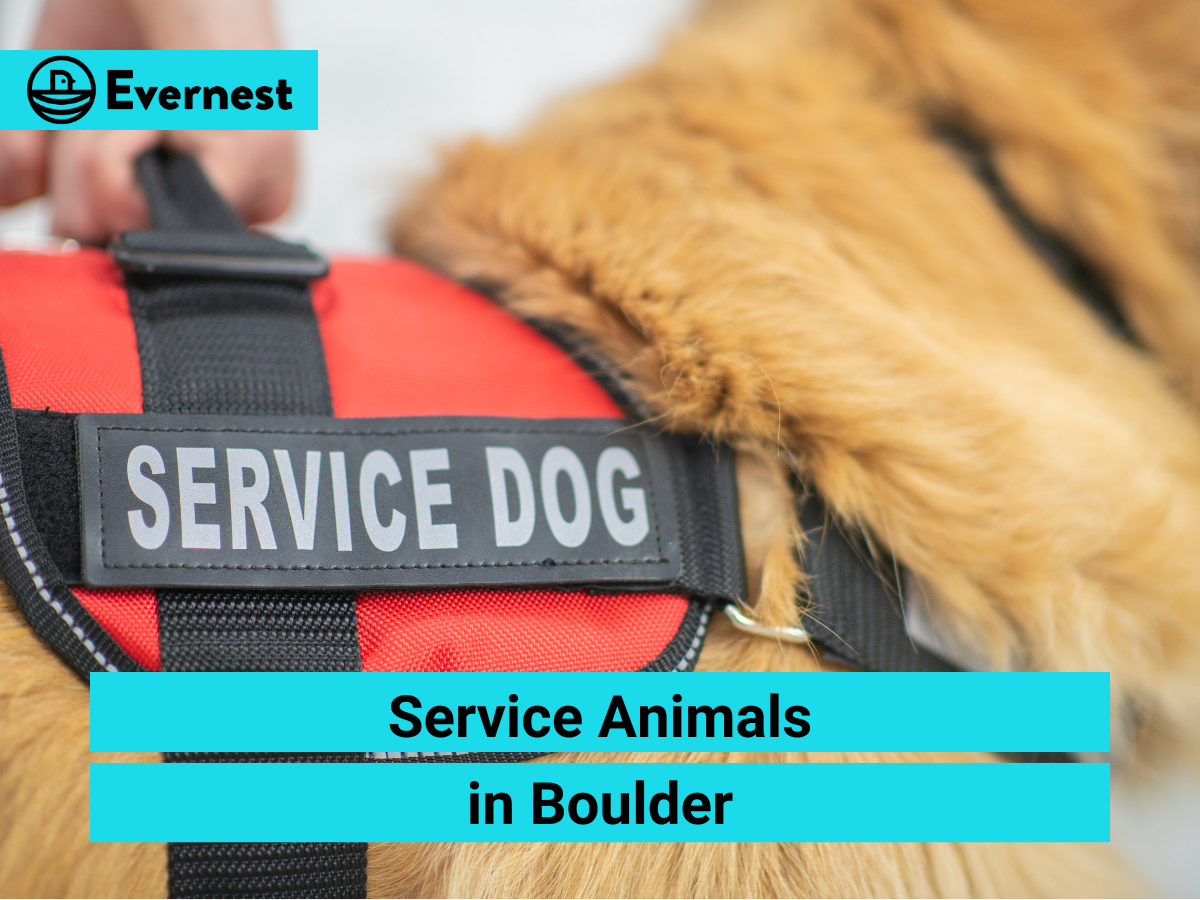Service animals play an important role in the lives of many individuals with disabilities. For landlords in Boulder, it is crucial to understand the laws and regulations surrounding service animals to ensure equal access and avoid discrimination. This article aims to provide landlords with a comprehensive guide on service animals in Boulder.
What is Considered a Service Animal Versus a Pet?
Before delving into the details, it is important to differentiate between a service animal and a pet. Under the Americans with Disabilities Act (ADA), a service animal is defined as a dog (and in some cases, a miniature horse) that is individually trained to perform tasks or work for the benefit of a person with a disability. Pets, on the other hand, are animals who have not gone through specialized training, even if they provide comfort and companionship to the disabled person.
Service animals undergo rigorous training to assist individuals with disabilities in their daily lives. These animals are taught to remain calm and focused in various environments, follow specific commands, and provide crucial support to their handlers. The training process for service animals is intensive and tailored to the individual needs of the handler, ensuring that the animal can effectively mitigate the challenges posed by the disability.
Furthermore, service animals play a vital role in enhancing the independence and quality of life for individuals with disabilities. By performing tasks such as alerting to medical conditions, providing stability for mobility-impaired individuals, or offering emotional support during distressing situations, service animals become indispensable companions that significantly improve the well-being of their handlers.
Can a Landlord Refuse a Service Animal?
In general, landlords cannot refuse to rent properties or impose additional fees based on a tenant's disability or the presence of a service animal. According to the ADA, landlords must make reasonable accommodations for individuals with disabilities, including allowing them to have a service animal in their rental property.
There are some exceptions to this rule. Landlords do not have to accommodate service animals if the presence of the animal would result in an undue financial or administrative burden on the landlord or if the animal poses a direct threat to the health and safety of others.
However, it is important to keep in mind that service animals are crucial for many individuals with disabilities as they provide assistance, independence, and support. Landlords should be aware of the vital role these animals play in the lives of their tenants and strive to create a welcoming and inclusive environment for all individuals, including those with service animals.
Additional Service Animal Requirements
While landlords cannot refuse service animals outright, there are certain requirements they can ask tenants to meet. These requirements aim to ensure that the service animal is well-behaved and poses no threat to the property or other residents.
Firstly, landlords can ask tenants to provide documentation that the animal is indeed a service animal and is necessary for a disability. This documentation can include a letter from a healthcare professional or a certificate from a recognized training organization.
Secondly, landlords can request proof of vaccination and adherence to local licensing and registration requirements for the service animal. These requirements are in place to protect the health and safety of all residents living in the community.
Furthermore, landlords may also require tenants with service animals to provide proof of liability insurance coverage. This insurance can help cover any damages caused by the service animal while on the property, giving landlords and other tenants peace of mind.
Additionally, landlords can set guidelines for the behavior of service animals within the rental property. This may include expectations for noise levels, waste disposal, and interactions with other residents to ensure a harmonious living environment for everyone.
How Should Residents Submit Documentation for a Service Animal?
When it comes to submitting documentation for a service animal, landlords should establish clear procedures that are accessible to tenants. This includes providing information on where and how to submit the necessary documentation, as well as any deadlines or requirements. Landlords may also consider creating a designated point of contact for inquiries and documentation submission.
It is also essential for landlords to maintain confidentiality and respect the privacy of residents throughout the documentation submission process. Any sensitive information provided by tenants regarding their service animals should be handled with the utmost care and only shared with individuals who have a legitimate need to know.
Note that a property management company can be a useful resource for creating a streamlined and confidential system for submitting and gathering documentation.
When Can a Service Animal be Added to a Lease?
In general, tenants should notify their landlords as soon as possible if they have a service animal or plan to get one. Service animals can be added to a lease at any point during the tenancy. It is advisable for landlords to include a specific policy regarding service animals in their lease agreements. By including this policy in the lease, both tenants and landlords have a clear understanding of their rights and responsibilities.
Final Thoughts
Understanding the rights and responsibilities of both landlords and tenants when it comes to service animals is vital for fostering an inclusive and accessible community. Remember, service animals are not pets, and they play a crucial role in enhancing the quality of life for individuals with disabilities. By treating service animals and their handlers with respect and understanding, landlords can create an environment that upholds the principles of equality and accessibility.
Looking for a property management company to assist with disability accommodation and other tenant related issues? Reach out to our team in Boulder to learn more about our services!


